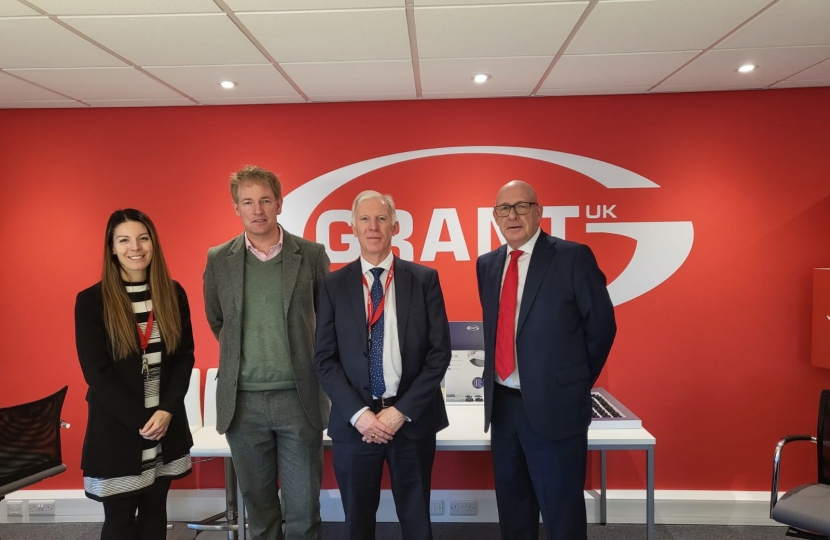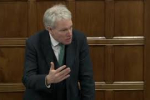
They say Guy Fawkes was the only man ever to enter Parliament with honest intentions. Last week the Owen Paterson business has ignited a controversy over the honesty and intentions of all MPs, and particularly those of us on the government side.
I read the Standards Committee report closely and it certainly appears from this that Mr Paterson broke the rules in lobbying government about the benefits of technology owned by companies he worked for. But he did so in the belief that the special circumstances of the situation - the information the companies had found about dangers to public health - created a legal exception; and he did his lobbying in the plain light of day, declaring his connection to the companies involved, and with the officials and ministers involved content with his approach.
This is why I have some sympathy with him personally. More significantly, I share his concern and that of the government that the process of investigation and conviction was unfair. The Parliamentary Commissioner for Standards admits concluding he was guilty before she started the process; he was unable to call witnesses in his defence or to make his case in open court; and he had no right of appeal.
On the evidence presented in the report my expectation is that a better system - an adversarial rather than a inquisitorial process, to be precise - would also have concluded Mr Paterson broke the rules. But a principle of justice is that the process needs to be fair before one concludes a judgement. On this basis I supported the amendment to the motion that would have set up a new system, and given Mr Paterson a retrial under better rules.
That’s my defence for backing the government last week. But it was all a total cock-up. The new system required the opposition parties to support it, and they refused to do so. Most of all, we should have fixed the system before the Paterson case, not in the middle of it. Now, we need to rethink both the process for enforcing the rules governing lobbying and outside interests, and the rules themselves. Is it right for MPs to have second jobs at all, where there is the potential for conflict of interest? Or should we have more confidence in the good faith of public servants and their accountability through the ballot box, and not create a bureaucracy of regulations and restrictions?
We were supposed to be discussing the environment, the transition to clean energy and the threats to the developing world from climate change. In that spirit and closer to home, on Friday I had the pleasure of a tour of the Crofton Beam Engines, on the Kennet and Avon Canal near Great Bedwyn. These enormous wrought-iron machines, installed early in the 19th century and still functioning today, pump water at a prodigious rate 40 feet up from the valley into the canal at the summit of Savernake Hill. They are powered by steam, and when I arrived the team pointed out a huge pile of coal skulking shamefully under a tarpaulin. It was the last of the coalmerchant’s stocks, apparently. After this, they’ll have to find another way to produce the steam, and are looking into biomass solutions.
The Crofton engines enabled the canal that linked the Bristol Avon with the Kennet and so the Thames, connecting Bristol and London and thus creating one of the great arteries of industrial England. Even then, the environment was borne in mind, albeit in a 19th century kind of way. Lord Ailesbury, who owned all the land hereabouts, ensured the necessary Act of Parliament stipulated that ‘the Coals, or other Combustibles and Fire with which such Engines or Engines shall be worked’, should ‘make as little Smoke, and be as small a Nuisance as possible’, particularly to ‘the Inhabitants of the said House’, namely Tottenham Park, Lord Ailesbury’s stately home nearby.
Before my visit to Crofton I dropped in on Grant UK in Devizes, specialists in ‘other Combustibles’. Grant manufacture half of all the oil-fired domestic boilers sold in Britain, so the energy transition is of some significance to them. I was hugely impressed by their commitment to reinvent their business for the age of clean energy, and their enthusiasm for new technologies - heat pumps and biofuels in particular - that will get us there.
The Kennet and Avon - the rivers, not the canal - are in my mind today as we vote on the Environment Bill. This hugely important new law will, inter alia, strengthen the duty of water companies to reduce the discharge of sewage into rivers. You wouldn’t know it from social media, however, where this morning a great campaign is underway to discredit the government with blatant misinformation about the Bill. The shame is that some people will believe we are lying, because they think that’s what we do. This is why we need honesty and trust in politics.




